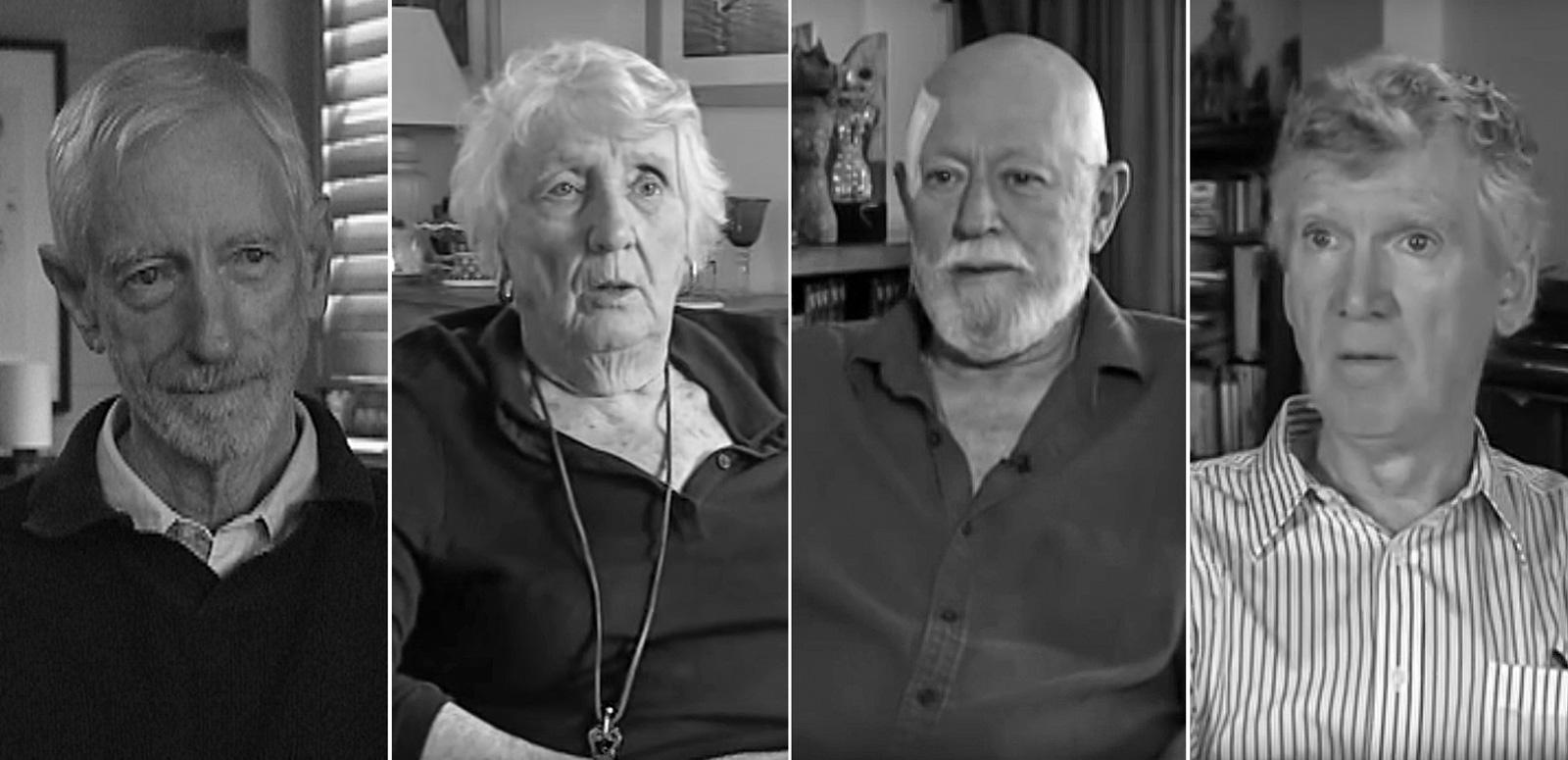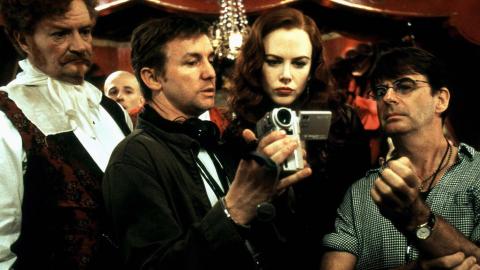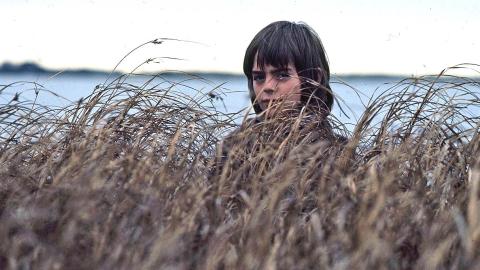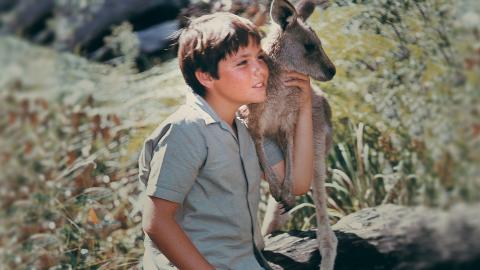

The Art of Screenwriting
The NFSA’s Oral History Program commissions interviews with media practitioners who have made significant contributions to the film, broadcast and sound recording industries in Australia. In addition we also acquire relevant interviews from other sources for inclusion in the national collection. In this regard, one of the more notable series of interviews lodged with the NFSA over recent years is that recorded for the Australian Writers Foundation (AWF)/ FOXTEL Oral History Project.
Representative samples are featured on this page as part of the NFSA’s recognition of the National Year of Reading in 2012.
Moya Wood
The first clip is from the AWF/FOXTEL interview with Moya Wood who has variously worked in Australian film and television over many years as a writer, script editor, script supervisor, and script consultant, often uncredited. Her credits include Skippy (1966-69), The More Things Change… (1986), The Box (1974-77), A Country Practice (1981-93), Summerfield (1977), Chopper Squad (1977-79), and Spit McPhee (1988).
In the following clip from her interview, recorded on 7 December 2011, she reflects on the writing process from storyline to finished production and the virtues of collaborative effort.
Moya Wood interviewed by Susan Lever (NFSA: 1035181)
A second segment from this interview can also be viewed on the NFSA YouTube channel. In this segment, Moya Wood discusses the reasons for the success of the Skippy TV series, for which she script edited around 99 episodes, and comments on her own interest in stories and programs for children.
David Williamson
The work of David Williamson, Australia’s best-known playwright, has encompassed more than 30 plays and numerous film and television productions. Williamson gained a Bachelor of Engineering in 1965 but discovered his true vocation while preparing sketches for student revues at Monash University. He began writing and performing plays with Betty Burstall’s La Mama Theatre Company in Melbourne in 1968, his screenwriting credits beginning with a loose adaptation of his early play The Coming of Stork for Tim Burstall (in 1971), for whom he also prepared the original screenplay of Petersen (1974). The Removalists (1975) and Don’s Party (1976) consolidated his reputation as a major playwright, and his collaborations with film directors Peter Weir (Gallipoli, 1981; The Year of Living Dangerously, 1982), Bruce Beresford (Don’s Party; The Club, 1980), and Simon Wincer (Phar Lap, 1983) enhanced his status as a screenwriter of note as well. Williamson has won four AFI Awards and the Australian Writers’ Guild AWGIE Award 11 times. He has received honorary doctorates of Literature from the University of Sydney (1988), Monash University (1990), Swinburne University of Technology (1998), and the University of Queensland (2004). Explore some of David’s work further on australianscreen.
In the following clip from his interview, recorded on 6 December 2011, David Williamson describes his first love as a writer as the way people use language, and how writing for film as a predominantly visual medium can be more confining than writing for the stage, with most film directors determined to put their own stamp on well written scripts.
David Williamson interviewed by Susan Lever (NFSA: 1037155)
A longer segment from this interview can also be viewed on the NFSA YouTube channel. In this segment, David Williamson reveals how local writers were on a mission in the late 1960s and 1970s to put Australian stories on the stage and screen, and how he enjoyed the opportunity to work on scripts for such iconic films as Gallipoli (1981), The Year of Living Dangerously (1982), and Phar Lap (1983).
Geoffrey Atherden
Atherden is best known for writing Mother and Son (1984-1993), Grass Roots (1999-2002) and Babakuieria (1986). The clip below is from an AWF/FOXTEL interview.
Geoffrey Atherden moved from a career as an architect to writing comedy for The Aunty Jack Show (1972-73), then situation comedies for the ABC before penning the enormously successful Mother and Son (1984-93). In addition to his work for television, Atherden has also written a number of film scripts and plays, and worked tirelessly for the Australian Writers’ Guild, including the setting up of the Australian Writers Foundation. Atherden has been the recipient of many AWGIE and AFI Awards and in 2009 was awarded membership of the Order of Australia. Explore some of Geoffrey’s work further on australianscreen.
In the following clip from his interview, recorded on 20 December 2010, Geoffrey Atherden discusses the different requirements for comedy and drama writing, and why he likes moving from one to the other, with particular reference to his work on the Grass Roots scripts.
Geoffrey Atherden AWF/FOXTEL interview (NFSA: 818970)
A longer segment from this interview can also be viewed on the NFSA YouTube channel. In this segment, Geoffrey Atherden explores the differences between film and television, the implications of these for the screenwriter, and the reasons why TV is more dialogue-based.
Tony Morphett
Acclaimed Australian scriptwriter Tony Morphett began his career as a journalist with The Daily Telegraph and the Talks Department at the Australian Broadcasting Corporation (ABC) before becoming a film and television scriptwriter. He has gone on to win many Logies and other industry awards for his screenwriting, and been associated with some of the most highly regarded and best known Australian films and television programs, including Certain Women (1973-76), The Sullivans (1976-83), The Last Wave (1977), Against The Wind (1978), The Shiralee (1987), Blue Heelers (1994-2006), Water Rats (1996-2001), Rain Shadow (2008), Sea Patrol (2007-2011) and Packed To The Rafters (2008-current). Explore some of Tony’s work further on australianscreen.
In the following clip from his AWF/Foxtel interview recorded on 13 January 2009, Tony Morphett discusses the writer’s role and responsibilities as a storyteller.
Tony Morphett career interview (NFSA: 779789)
A longer segment from this interview can be viewed on the NFSA YouTube channel. In this segment, Tony Morphett discusses the origins of Blue Heelers (1994-2006), Water Rats (1996-2001), and names Rain Shadow (2008, co-written with Jimmy Thomson) as one of his finest achievements.
Australian Writers Foundation oral history project
The Australian Writers Guild set up the Australian Writers Foundation in 2000 with the aim of increasing awareness of the role, importance and the successes of Australian writers. The Foundation runs, supports and collaborates with others in a range of activities to celebrate the work of Australia’s outstanding writers.
In 2006 the Australian Writers’ Foundation, with the support of FOXTEL, embarked on a program to record the oral history of Australia’s significant writers in radio, television and film. The AWF FOXTEL Oral History Project ‘aims to provide an archival film record of the scriptwriters giving an account of their experiences in writing Australian drama. While the history of Australian film and television is widely documented, the writers’ pivotal role in that history is largely omitted from existing analysis. These interviews are conducted with the generous support of FOXTEL and given to the National Film and Sound Archive and the Australian Film, Television and Radio School for archiving.’
The NFSA has received interviews with the following writers as part of this series. Access to these oral histories can be arranged through the NFSA and at national access centres.
Joan Ambrose (NFSA: 772971)
Geoffrey Atherden (NFSA: 818970)
Sonia Borg (NFSA: 1014414)
Anne Brooksbank (NFSA: 1127165)
Bob Ellis (NFSA: 1127159)
Cliff Green (NFSA: 800473)
Tom Hegarty (NFSA: 779402)
Alan Hopgood (NFSA: 772907)
Ian Jones (NFSA: 800487)
Margaret Kelly (NFSA:1139493)
Richard Lane (NFSA: 759030)
Tony Morphett (NFSA: 779789)
Gary Reilly (NFSA: 818963)
Ted Roberts (NFSA: 800465)
Tony Sattler (NFSA: 818921)
Roger Simpson (NFSA: 818916)
Hugh Stuckey (NFSA: 759094)
David Williamson (NFSA: 1037155)
Eleanor Witcombe (NFSA: 750108)
Moya Wood (NFSA: 1035181)
Brian and Mary Wright (NFSA: 800451)
Peter Yeldham (NFSA: 759145)
The National Film and Sound Archive of Australia acknowledges Australia’s Aboriginal and Torres Strait Islander peoples as the Traditional Custodians of the land on which we work and live and gives respect to their Elders both past and present.


